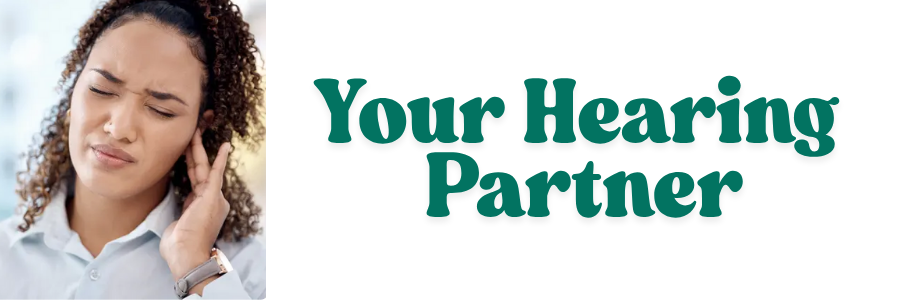Tinnitus: Overview, Causes, and Treatments
What is Tinnitus?
Tinnitus is the perception of noise or ringing in the ears when no external sound is present. It is a symptom rather than a disease itself and can vary in pitch, intensity, and duration. Common descriptions include:
- Ringing
- Buzzing
- Hissing
- Clicking
- Roaring
- Whistling
Tinnitus can be subjective (only heard by the patient) or objective (rare, caused by internal bodily sounds detectable by a doctor). It may be temporary or chronic, and in severe cases, it can interfere with concentration, sleep, and emotional well-being.
Types of Tinnitus
Tinnitus can be classified based on perception, sound characteristics, and underlying causes. Understanding the different types helps in diagnosis and treatment.
1. Classification by Perception
A. Subjective Tinnitus (Most Common – ~95% of Cases)
- Only heard by the patient (no external sound source).
- Usually caused by auditory nerve or brain pathway dysfunction.
- Common causes:
- Noise-induced hearing loss
- Age-related hearing loss (presbycusis)
- Earwax blockage
- Meniere’s disease
- Ototoxic medications
B. Objective Tinnitus (Rare – ~5% of Cases)
- Can be heard by a doctor (using a stethoscope or microphone).
- Caused by internal bodily sounds, such as:
- Blood flow (vascular conditions)
- Muscle spasms (myoclonus)
- Eustachian tube dysfunction
- Often pulsatile (matches heartbeat) or clicking (from muscle twitches).
2. Classification by Sound Characteristics
A. Tonal Tinnitus
- Continuous sound with a distinct pitch:
- High-pitched ringing (most common)
- Low-pitched humming
- Often linked to cochlear damage (e.g., noise exposure).
B. Pulsatile Tinnitus
- Rhythmic, whooshing, or thumping sound synchronized with the heartbeat.
- Caused by blood flow changes or vascular abnormalities, such as:
- High blood pressure
- Atherosclerosis (narrowed arteries)
- Turbulent blood flow near the ear
- Benign intracranial hypertension
- May indicate a serious vascular condition (requires medical evaluation).
C. Musical Tinnitus (Musical Ear Syndrome)
- Rare condition where patients hear phantom music or songs.
- Often seen in elderly individuals with hearing loss.
- May be linked to brain’s auditory cortex filling in missing sounds.
D. Clicking or Crackling Tinnitus
- Intermittent, rapid clicking sounds.
- Causes:
- Middle ear muscle spasms (stapedius, tensor tympani)
- TMJ disorders (jaw joint issues affecting ear nerves)
- Eustachian tube dysfunction (ear popping sounds)
3. Classification by Duration
A. Acute (Temporary) Tinnitus
- Lasts less than 3–6 months.
- Common causes:
- Loud noise exposure (e.g., concert, gunfire)
- Ear infection
- Stress or fatigue
B. Chronic Tinnitus
- Persists longer than 6 months.
- Often linked to permanent hearing damage or neurological changes.
- Requires long-term management strategies (sound therapy, CBT).
4. Classification by Underlying Cause
| Type of Tinnitus | Possible Causes |
|---|---|
| Neurological Tinnitus | Brain injuries, acoustic neuroma, multiple sclerosis |
| Somatic Tinnitus | Jaw (TMJ) misalignment, neck injuries, muscle tension |
| Vascular Tinnitus | High blood pressure, atherosclerosis, aneurysms |
| Drug-Induced Tinnitus | Aspirin, NSAIDs, certain antibiotics, diuretics |
| Metabolic Tinnitus | Thyroid disorders, vitamin B12 deficiency, anemia |
Which Type Do You Have?
- Ringing/Hissing? → Likely subjective, tonal tinnitus (hearing loss-related).
- Pulsing/Whooshing? → Could be objective, vascular tinnitus (see a doctor).
- Clicking/Crackling? → May be TMJ or muscle-related.
Types of Tinnitus
Tinnitus can be classified based on perception, sound characteristics, and underlying causes. Understanding the different types helps in diagnosis and treatment.
1. Classification by Perception
A. Subjective Tinnitus (Most Common – ~95% of Cases)
- Only heard by the patient (no external sound source).
- Usually caused by auditory nerve or brain pathway dysfunction.
- Common causes:
- Noise-induced hearing loss
- Age-related hearing loss (presbycusis)
- Earwax blockage
- Meniere’s disease
- Ototoxic medications
B. Objective Tinnitus (Rare – ~5% of Cases)
- Can be heard by a doctor (using a stethoscope or microphone).
- Caused by internal bodily sounds, such as:
- Blood flow (vascular conditions)
- Muscle spasms (myoclonus)
- Eustachian tube dysfunction
- Often pulsatile (matches heartbeat) or clicking (from muscle twitches).
2. Classification by Sound Characteristics
A. Tonal Tinnitus
- Continuous sound with a distinct pitch:
- High-pitched ringing (most common)
- Low-pitched humming
- Often linked to cochlear damage (e.g., noise exposure).
B. Pulsatile Tinnitus
- Rhythmic, whooshing, or thumping sound synchronized with the heartbeat.
- Caused by blood flow changes or vascular abnormalities, such as:
- High blood pressure
- Atherosclerosis (narrowed arteries)
- Turbulent blood flow near the ear
- Benign intracranial hypertension
- May indicate a serious vascular condition (requires medical evaluation).
C. Musical Tinnitus (Musical Ear Syndrome)
- Rare condition where patients hear phantom music or songs.
- Often seen in elderly individuals with hearing loss.
- May be linked to brain’s auditory cortex filling in missing sounds.
D. Clicking or Crackling Tinnitus
- Intermittent, rapid clicking sounds.
- Causes:
- Middle ear muscle spasms (stapedius, tensor tympani)
- TMJ disorders (jaw joint issues affecting ear nerves)
- Eustachian tube dysfunction (ear popping sounds)
3. Classification by Duration
A. Acute (Temporary) Tinnitus
- Lasts less than 3–6 months.
- Common causes:
- Loud noise exposure (e.g., concert, gunfire)
- Ear infection
- Stress or fatigue
B. Chronic Tinnitus
- Persists longer than 6 months.
- Often linked to permanent hearing damage or neurological changes.
- Requires long-term management strategies (sound therapy, CBT).
4. Classification by Underlying Cause
| Type of Tinnitus | Possible Causes |
|---|---|
| Neurological Tinnitus | Brain injuries, acoustic neuroma, multiple sclerosis |
| Somatic Tinnitus | Jaw (TMJ) misalignment, neck injuries, muscle tension |
| Vascular Tinnitus | High blood pressure, atherosclerosis, aneurysms |
| Drug-Induced Tinnitus | Aspirin, NSAIDs, certain antibiotics, diuretics |
| Metabolic Tinnitus | Thyroid disorders, vitamin B12 deficiency, anemia |
Which Type Do You Have?
- Ringing/Hissing? → Likely subjective, tonal tinnitus (hearing loss-related).
- Pulsing/Whooshing? → Could be objective, vascular tinnitus (see a doctor).
- Clicking/Crackling? → May be TMJ or muscle-related.
Would you like guidance on treatments for a specific type?
Causes of Tinnitus
Tinnitus can result from various underlying conditions, including:
1. Hearing Loss (Most Common Cause)
- Age-related hearing loss (presbycusis) – Degeneration of inner ear structures over time.
- Noise-induced hearing loss – Exposure to loud noises (concerts, machinery, headphones) damages hair cells in the cochlea.
2. Ear and Sinus Issues
- Earwax blockage – Excessive buildup can irritate the eardrum.
- Eustachian tube dysfunction – Pressure imbalances (e.g., from colds or flights).
- Middle ear infections (otitis media) – Fluid buildup or inflammation.
- Meniere’s disease – Inner ear disorder causing vertigo, hearing loss, and tinnitus.
3. Head and Neck Injuries
- Trauma can affect auditory nerves or brain sound processing.
4. Medications (Ototoxic Drugs)
- Certain antibiotics (e.g., gentamicin)
- High doses of aspirin or NSAIDs
- Diuretics (e.g., furosemide)
- Some chemotherapy drugs
5. Circulatory and Vascular Disorders
- High blood pressure – Increased blood flow can cause pulsatile tinnitus (rhythmic whooshing).
- Atherosclerosis – Narrowed arteries near the ear create turbulent blood flow.
6. Neurological and Other Conditions
- TMJ disorders – Jaw joint issues can affect ear nerves.
- Acoustic neuroma – A benign tumor on the auditory nerve.
- Stress and anxiety – Can worsen perception of tinnitus.
Possible Treatments and Management Strategies
Since tinnitus has no universal cure, treatment focuses on managing symptoms and addressing underlying causes.
1. Medical Treatments
- Earwax removal – If blockage is the cause.
- Hearing aids – For hearing loss-related tinnitus.
- Medications – Antidepressants or anti-anxiety drugs may help in severe cases (though no drug specifically cures tinnitus).
2. Sound Therapy
- White noise machines / masking devices – Provide background noise to distract from tinnitus.
- Hearing aids with tinnitus masking features – Amplify external sounds to reduce tinnitus perception.
- Tinnitus retraining therapy (TRT) – Combines counseling and sound therapy to habituate the brain to tinnitus.
3. Lifestyle and Behavioral Approaches
- Stress management – Meditation, yoga, and cognitive behavioral therapy (CBT) can reduce tinnitus distress.
- Avoiding loud noises – Use ear protection in noisy environments.
- Diet and exercise – Reducing caffeine, alcohol, and nicotine may help; cardiovascular health improves blood flow.
4. Experimental and Alternative Therapies
- Transcranial magnetic stimulation (TMS) – Non-invasive brain stimulation for severe cases.
- Acupuncture / Hypnosis – Limited evidence but may help some individuals.
- Dietary supplements (e.g., zinc, magnesium, ginkgo biloba) – Results are mixed; consult a doctor before use.
5. Surgical Options (Rare Cases)
- For pulsatile tinnitus caused by vascular abnormalities, surgery may be an option.
- Cochlear implants – For severe hearing loss with tinnitus.
When to See a Doctor
Seek medical attention if tinnitus:
- Is sudden or worsening
- Is accompanied by hearing loss or dizziness
- Is pulsatile (could indicate vascular issues)
- Affects daily life significantly
Tinnitus is a complex condition with multiple potential causes. While there is no definitive cure, many people find relief through hearing aids, sound therapy, stress management, and treating underlying conditions. If tinnitus persists, consulting an audiologist or ENT specialist is recommended for personalized treatment.
Stay tuned for expert tinnitus remedies and home care.

